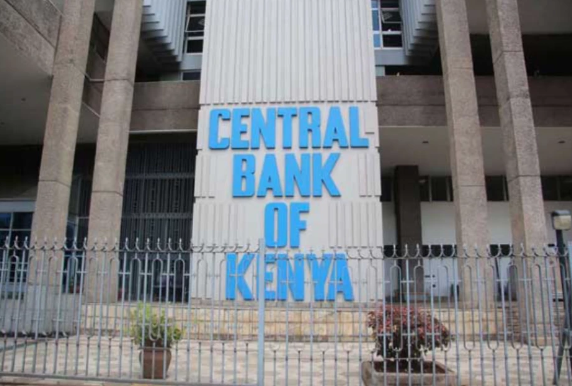The Central Bank of Kenya (CBK) has issued a directive to all chief executives of financial institutions, emphasizing the need to comply with the transition of the Kenya Electronic Payment and Settlement System (KEPSS) to the internationally recognized ISO 20022 standards.
This move aims to enhance Kenya’s National Payments System (NPS) and facilitate the efficient transmission of high-value, time-sensitive international and domestic payments.
Key Details:
– Global Context: The ISO 20022 standard is considered a transformative solution for enabling secure and interoperable electronic payments across jurisdictions worldwide.
– Implementation Timeline: The CBK has set a target date for the new system to go live on September 30, while the Society for Worldwide Interbank Financial Telecommunications (SWIFT) has a deadline of early 2025.
– Preparation Requirements: The CBK has stated that the transition will necessitate extensive planning, system configuration, and testing to mitigate risks of payment or statement integration failures.
Readiness of Financial Institutions:
– Bank Readiness: Banks in Kenya are reported to be prepared to join the global payment community next year, having upgraded their Automated Clearing House (ACH) to be compatible with the ISO 20022 standard, as noted by the Kenya Bankers Association (KBA).
– Client Benefits: This upgrade is particularly beneficial for clients utilizing electronic payments, as the ISO 20022 standard promises richer and more structured payment data, enhanced digital solutions, improved automation and efficiency, refined compliance capabilities, and real-time end-to-end execution.
– The KBA asserts that its upgraded electronic payments platform will allow for standardized messaging that can be transmitted accurately through correspondent banks, reducing delays and human error and leading to greater automation.
Despite banks being ready since 2023, there has been limited information regarding the readiness of non-banking financial institutions for this transition.
Benefits of ISO 20022 Standard:
1. Enhanced Data Structure: The standard allows for richer and more detailed payment information, enabling better data analysis and reporting.
2. Increased Automation: Financial institutions can automate processes more efficiently, reducing manual intervention and errors.
3. Improved Compliance: Enhanced capabilities for regulatory compliance through standardized messaging.
4. Real-time Processing: The standard facilitates quicker processing times for payments, benefiting customers and businesses alike.
5. Interoperability: ISO 20022 fosters better interoperability between different payment systems and institutions globally, ensuring seamless transactions across borders.
This transition is poised to significantly improve the efficiency and security of financial transactions in Kenya, positioning the country within the global payments ecosystem.
The flexibility of ISO 20022 offers a significant opportunity for developing new domestic financial messages, aiming to streamline electronic transactions and card-based payment messages across all financial networks.
The complexity of an electronic financial transaction life-cycle has highlighted the need for a simplified, collaborative, and unified protocol, such as the Purpose of Payment (PoP) code utilized in ISO 20022. This code serves as a common, flexible, and simplified message structure.
Readiness of Banks for ISO 20022:
In March 2023, commercial banks in Kenya, represented by the Kenya Bankers Association (KBA), launched an upgrade of the Automated Clearing House (ACH) to the ISO 20022 standard.
This upgrade is expected to provide local bank customers with faster clearing services for cheques, direct debits, and electronic funds transfers.
– Facilitating Payments: The upgraded ACH conforms to the ISO 20022 digital payment standard, which is gaining global traction and is expected to become a universal industry standard by 2025. The Central Bank of Kenya (CBK) recognized this milestone, noting that it aligns with the National Payments Strategy 2022–2025 launched in February 2022.
– Vision for the Payments System: The CBK stated, “The Strategy is anchored on the vision of a secure, fast, efficient, and collaborative payments system that supports financial inclusion and innovations that benefit Kenyans.”
Goals of the Upgrade:
The upgrade of the ACH is designed to establish a global standard that enhances the consistency and richness of structured data for transactions, improving the efficiency, effectiveness, and transparency of payment services. The CBK emphasized that this development would yield significant benefits for both customers and institutions in the ACH, further supporting the overall goals of Kenya’s National Payments Strategy.
The ISO 20022 upgrade represents a significant milestone in the global electronic payment sector, with the local banking industry now adopting it to achieve a fully international standard that allows integration into any payment system worldwide. This standard promises global interoperability, enhancing the efficiency of electronic payments.
Global Impact of ISO 20022
The worldwide adoption of the ISO 20022 standard is poised to significantly impact financial institutions, electronic payment platforms, corporations, and any businesses involved in financial services and large-value payments.
Key stakeholders, including SWIFT, have highlighted ISO 20022 as the future of financial messaging, given that it is the most comprehensive financial data standard available today.
– Enhanced Data and Security: By providing richer and more detailed data, the ISO 20022 standard can drastically reduce the incidence of fraud and cybercrime in both domestic and international high-value payments.
– Broader Applications: Beyond payments, ISO 20022 is set to become the leading messaging standard across various sectors of the global financial services industry. It facilitates a common understanding and interpretation in diverse areas, including securities, trade services, forex, card payments, and related services.
Implementing ISO 20022 can help mitigate financial liability across the global financial landscape, impacting every payment gateway and technology solution.
However, the stringent application of this standard may lead to initial challenges as it is rolled out, potentially causing frustration for legitimate customers.
It is a delicate process that many hope will eventually lead to smoother operations, enabling banks and financial institutions to know their customers better.
Industry experts anticipate that the adoption of ISO 20022 will ensure speed, stability, and openness across all electronic payment platforms within financial institutions.
While many countries and firms have already made substantial investments in technology upgrades to comply with the standard, challenges remain, particularly in jurisdictions where the adoption process may be slower and where technology is still developing.
Future Outlook
Despite these challenges, there is optimism that a majority of countries will be onboard with the ISO 20022 standard by the target date of 2025, as the financial sector moves towards a more integrated and secure global payments environment.



